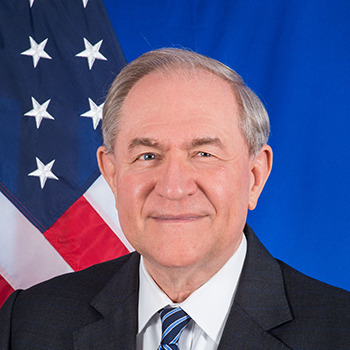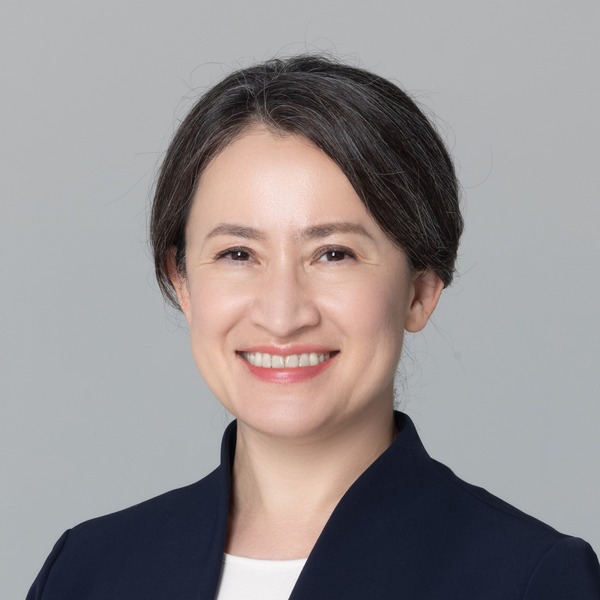The world is increasingly being shaped by economic shifts, climate change, and the continued integration of AI into daily life. Amidst these challenges lie glimmers of collaboration, innovation, and reform, and the best boats will stay afloat by transforming adversity into opportunities for resilience.
In the Asia-Pacific region’s journey through these turbulent waters, CAPRI’s Annual Forum is a platform for exchange, gathering experts to chart a course for a more resilient and innovative future. Join us in exploring new ideas and policies across technology, economic interdependence, sustainability, and disaster recovery as the region adapts to these changing currents.
This event will be held in English, with Mandarin interpretation available for in-person attendees.
9:00 a.m.-1:00 p.m.
Taipei Time
14th Floor,
Taipei New Horizon
And Online
The world is increasingly being shaped by economic shifts, climate change, and the continued integration of AI into daily life. Amidst these challenges lie glimmers of collaboration, innovation, and reform, and the best boats will stay afloat by transforming adversity into opportunities for resilience.
In the Asia-Pacific region’s journey through these turbulent waters, CAPRI’s Annual Forum is a platform for exchange, gathering experts to chart a course for a more resilient and innovative future. Join us in exploring new ideas and policies across technology, economic interdependence, sustainability, and disaster recovery as the region adapts to these changing currents.
This event will be held in English, with Mandarin interpretation available for in-person attendees.
As CAPRI approaches its 2-year anniversary, it continues to go from strength to strength. For such a young organization, it has already achieved remarkable recognition in the region and beyond. Through partnerships across Europe, North America, and Asia, CAPRI is building awareness of the unique Asia Pacific experience, demonstrating the region’s willingness to lead the world in overcoming obstacles.
Innovation for a sustainable future is a concept close to my heart, and I am pleased that today’s discussions will cover not only the opportunities, but also the challenges the region faces in the coming decades. At last year’s Asia Pacific Offshore Wind and Green Hydrogen Summit, I emphasised that strong and urgent leadership is crucial to reduce our dependency on fossil fuels and meet commitments to achieve net zero emissions. Policymakers will lean heavily on organizations in the region, such as CAPRI, to offer them practical solutions to impending challenges, and open dialogue is essential for this process.
In the past year, we have welcomed three new members to the International Advisory Council, each bringing their own expertise and insights to the organization. Wei Shyy, President of The Hong Kong University of Science and Technology from 2018 to 2022, drew on extensive experience as an aerospace engineer and educator to speak at CAPRI’s public forum in March, highlighting the need for innovative approaches to foster a talented workforce. Daniel Tsai, Chairman of Fubon Group, has supported CAPRI since its conception, sharing its vision to amplify the Asia Pacific’s voice on the international stage. Finally, our first Japanese council member, Takeshi Niinami, President and CEO of Suntory Holdings, has served as a senior economic advisor to several prime ministers of Japan and has been involved in numerous international organizations. All of them have a keen eye on how CAPRI can clearly convey its findings to policymakers at a regional and global level.
I wish to thank all the members of the International Advisory Council, Board of Directors, staff, and supporters for the continued success of CAPRI. With organizations such as CAPRI leading the way, I look forward to witnessing the region’s trajectory to a prosperous future.
Malcolm Turnbull
Chair of the International Advisory Council

Welcome to CAPRI’s second Annual Forum, “Changing Currents: Innovation and Transformation for the Asia Pacific.” I am delighted that so many of you are able to join us in Taipei for a fruitful exchange of ideas covering some of the region’s most pressing issues. I wish to thank all of our partners who have supported the program today: CAPRI USA, the National Bureau of Asian Research, the Partnership for Health System Sustainability and Resilience, Nikkei Asia, and CommonWealth Magazine.
As we come together for the second time, it is worth reflecting on our inaugural Annual Forum just 12 months ago. It marked the first time CAPRI’s international community convened in person to discuss the lessons policymakers in the region could learn from the pandemic. As our speakers highlighted, the resilience the region displayed during COVID-19 was only possible due to forward-thinking policymakers, who had utilized periods of calm to plan for future crises.
It is with that in mind that today’s forum considers the role of innovation in the Asia Pacific. Governments are facing more challenges than ever as they plan for their constituents’ futures. Cutting-edge thinking is essential to navigate these waves of change successfully. The subjects of today’s discussions—AI, green technology, disaster resilience—are just some of the issues modern policymakers must consider.
Addressing these issues requires cross-border and interdisciplinary collaboration. In a region with such rich diversity, voices from all backgrounds must have an opportunity to contribute to the discussion. Organizations like CAPRI are needed to bring together these different ideas, breaking down silos and promoting a concerted approach.
This year’s theme—Changing Currents—demonstrates that the region cannot rely on its past strengths to build a sustainable future. In a continually evolving environment, leading the charge becomes more important than ever. Across the Asia Pacific, individuals and organizations are thinking about how to cement their place in the future, planning not just for tomorrow, this month, or this year, but looking ahead decades from now. I am proud that CAPRI has joined this cohort, supporting the region to become a global thought leader, and I look forward to hearing the insights of today’s speakers.
Syaru Shirley Lin
Chair of CAPRI


US Ambassador to the Organization for Security and Co-operation in Europe (2019–2021)
Virginia’s 68th Governor (1998–2002)
Ambassador James “Jim” S. Gilmore III is a Former U.S. Ambassador to the Organization for Security and Cooperation in Europe (OSCE). The US Senate confirmed Mr. Gilmore as U.S. Ambassador to the OSCE on May 23, 2019.
Mr. Gilmore grew up in the Fan District of Richmond, Virginia. In 1971, he enlisted as a volunteer in the U.S. Army after college and worked as a counter-intelligence agent in then-West Germany after intensive language training in German, in which he became fluent. In 1974, he was awarded the Joint Service Commendation Medal for Service to NATO. He graduated from the University of Virginia (UVA) and earned a B.A. degree in International Relations, Russian Area Studies (1971). He then earned his law degree at the UVA School of Law (1977). He practiced law until 1987 when he was elected as chief prosecutor for Henrico County. In 1993, he was elected Attorney General of Virginia.
In 1997, he was elected as Virginia’s 68th Governor. As governor, his administration established the first Secretary of Technology cabinet position in the nation. During his tenure, Governor Gilmore was focused on creating jobs by leading several trade missions to South America in 1999 (Argentina, Brazil, and Chile), Asia in 2000 (Japan, South Korea, and Taiwan), and Europe in 2001 (Germany, United Kingdom, and Ireland).
During the trade mission to Taiwan and Hong Kong, Governor Gilmore promoted inward investment, opened new markets for Virginia products and services, and encouraged activity in Virginia’s ports. Virginia exported $2.4 billion in products to Japan, Korea, Taiwan, and Hong Kong in 1999. Collectively, Japan, Korea, Taiwan, and Hong Kong invested over $4.3 billion in Virginia facilities, employing over 12,000 people during his administration.
Mr. Gilmore ran for the GOP nomination for president from July 2015 to February 2016. In November 2018, he was nominated to serve as the U.S. Representative to the United States Mission to the Organization for Security and Cooperation in Europe, a position which carries the rank of ambassador and is based in Vienna, Austria. His nomination was confirmed by a voice vote of the U.S. Senate on May 23, 2019. Gilmore was sworn in at the U.S. State Department on June 25, 2019, and presented his credentials to the OSCE Secretary General on July 2, 2019. He served until January 2021.
Mr. Gilmore traveled to Ukraine in May 2021 and headed up a delegation. He met with numerous Ukrainian cabinet and national security officials. Other travels have taken him to Israel, Pakistan, Croatia, Austria, the Czech Republic, Australia, and Peru. Today, he is a Council on Foreign Relations member and serves on the advisory board of the American Foreign Policy Council.
From 1999 to 2003, Mr. Gilmore served as Chairman of the Congressional panel known as the “Gilmore Commission” to assess America’s capabilities to respond to a terrorist attack. Other prominent positions include serving as chairman of the Air Force Academy Board of Visitors. Prior to his USOSCE Ambassadorship, he served as President and CEO of the American Opportunity Foundation, which works to shape the discussions around American society and offer conservative solutions that promise prosperity, national security, and American values. Since leaving office, he has served on several corporate boards of directors. He is married to Roxane Gatling Gilmore, and they have two adult sons and one granddaughter.

Vice President-elect of the Republic of China (Taiwan)
Bi-khim Hsiao is currently the Vice President-elect of Taiwan. She was elected along with President-elect Lai Ching-te on January 13, 2024, and they will be inaugurated on May 20, 2024.
Previously, Hsiao served as Taiwan’s Representative to the United States from 2020 to 2023. She has also served as a Senior Advisor to the President at Taiwan’s National Security Council.
Vice President-elect Hsiao served four terms in Taiwan’s Legislature, representing overseas citizens for her first term, and then the constituents of Taipei City and Hualien County through different terms. For many years, she was the ranking member of the Foreign Affairs and Defense Committee and previously the chair of the USA Caucus in the Legislative Yuan.
She began her political career as Director of the Democratic Progressive Party International Affairs Department. After Taiwan’s first democratic change of government in 2000, she became an Adviser at the Office of the President. She was the international spokesperson for all DPP presidential elections between 2000 and 2012.
Vice President-elect Hsiao has taken on numerous leadership roles in international organizations. She was the Chair of the Council of Asian Liberals and Democrats (CALD), an organization representing Asian democratic political parties. Between 2005 and 2012, she was elected Vice President of the Bureau of Liberal International (LI), a London-based global political party organization.
She is also a founding Board Member of the Taiwan Foundation for Democracy. Born in Kobe, Japan, Representative Hsiao grew up in Tainan, a city in southern Taiwan. She has an MA in Political Science from Columbia University, New York, and a BA in East Asian Studies from Oberlin College, Ohio.
Through keynote addresses and panel discussions, guests will engage with distinguished speakers, leaders, and scholars who have played pivotal roles in CAPRI’s cutting-edge research and recent policy dialogues.
James S. Gilmore III, Former US Ambassador to the Organization for Security and Co-operation in Europe (2019–2021) and 68th Governor of Virginia (1998–2002)
As China and the US engage in strategic competition, how are actors in the Asia Pacific adapting to economic deceleration, derisking, and uncertainty? Given these challenges, how will societies from Taiwan, South Korea to India and all of Asia maintain their economic resilience? The authors and editors of the National Bureau of Asian Research’s latest Strategic Asia book will discuss the region’s prospects for economic growth and regional interdependence.
Michael Wills, Executive Vice President, National Bureau of Asian Research
Yul Sohn, President, East Asia Institute
Gulshan Sachdeva, Professor, Jawaharlal Nehru University
Syaru Shirley Lin, Chair, CAPRI
Moderated by Alison Szalwinski, Vice President of Research, National Bureau of Asian Research
AI, the low altitude and low earth orbit economy, and advanced computing are increasingly changing our lives. This dialogue will explore emerging challenges and opportunities as the Asia Pacific applies these new technologies and grapples with their ethical, environmental, and security consequences.
Wei Shyy, Former President, The Hong Kong University of Science and Technology
Bor-Sung Liang, Senior Director, Corporate Strategy & Strategic Technology, MediaTek
Moderated by Margaret Foster Riley, Professor of Law, Public Health Sciences, and Public Policy, University of Virginia
Climate change, aging societies, and digital transformation present major challenges to the health and livelihoods of people in the Asia Pacific. Marking the launch of CAPRI’s research as a partner in the World Economic Forum initiative the Partnership for Health System Sustainability and Resilience (PHSSR), this dialogue will highlight how health systems in the region are preparing for and responding to these challenges. Representatives from PHSSR partners will also highlight how the public sector, private sector, civil society, and academia are collaborating innovatively to create sustainable health systems.
Jarret Su, Co-Head of Healthcare & Life Science, KPMG in Taiwan
Vita Chien, General Manager, AstraZeneca Taiwan
Moderated by Caroline Fried, Interim Director of Research, CAPRI
As temperatures reach record highs, the need for collaboration to mitigate climate change impacts while sustaining economic growth becomes increasingly evident. This panel explores the synergies between industry and research in forging a sustainable future. The discussion will cover strategies for integrating sustainability into manufacturing, technological innovation, and global commitments to curb carbon emissions.
Sunjoy Joshi, Chairman, Observer Research Foundation
Grace Liu, Corporate Sustainability Officer, Acer
Nelson Chang, Chairman, Taiwan Cement
Moderated by Alistair Lang, Chief Research Coordinator, CAPRI
From recent earthquakes in Taiwan and Japan to typhoons and flash floods in the Philippines, natural hazards threaten livelihoods across the Asia Pacific. However, each disaster offers opportunities for learning to build more resilient societies. This panel will explore how Taiwan, Japan, and the Philippines have responded to disasters and are preparing for future crises across government, academia, and business.
Shuhei Nomura, Associate Professor of Health Policy and Management, Keio University School of Medicine
Steven Pan, Chairman, Silks Hotel Group
Kristoffer Berse, Dean, National College of Public Administration and Governance, University of the Philippines Diliman
Joe Huang, Director of Lean Planning for Volunteer Development, Buddhist Tzu Chi Charity Foundation
Moderated by Jessica Chao, Director of Strategic Planning, CAPRI
Bi-khim Hsiao, Vice President-elect of the Republic of China (Taiwan)
Syaru Shirley Lin, Chair, CAPRI





In our inaugural Annual Forum on May 29, 2023, keynote speakers included Malcolm Turnbull, former Prime Minister of Australia and Chair of CAPRI’s International Advisory Council, and Chen Chien-Jen, Premier of Taiwan.